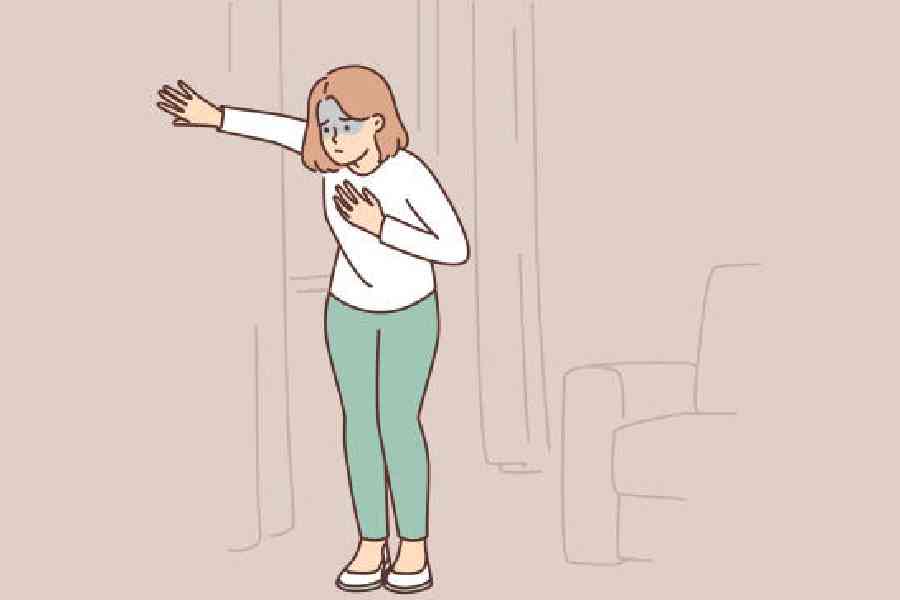Breathing is a silent, unobtrusive process. Sometimes, however, breathing produces a whistling sound. And the person may appear to be struggling for breath.
Aspiration of a foreign object like a peanut or coin may precipitate wheezing. It may occur if there is a cold or exposure to inhaled allergens like cigarette smoke or vaporising mosquito repellents. It may be aggravated by food like sea fish or prawns.
Babies sometimes produce a crowing sound when they breathe. Parents think this is wheezing but it is a laryngeal stridor caused by laryngomalacia, a congenital softening of the tissues of the larynx (voice box). Unlike real wheezing, the sound becomes quieter when the baby rests or changes its position. It occurs because the larynx is malformed and floppy. It spontaneously improves as the child grows and, in 90 per cent cases, disappears by two years.
Any irritant or infection can cause airways to secrete mucous. The airways then expand and this mucous is coughed out. In wheezers, the airways constrict instead. The mucous sticks and narrows the airways, and repeated coughing will not clear them. The person becomes breathless and agitated. In children, the breathing difficulty may be accompanied by pulling in of the chest muscles. This sight is distressing for both the child and the parents.
A correct breathing technique involves downward movement of the diaphragm (a muscle separating the chest from the abdomen) and outward movement of the stomach while breathing in. The opposite should occur while breathing out. In wheezers, there is often a paradoxical movement. The breathing is inefficient, and the mucous gets trapped.
At any age, allergies also cause the nasal mucosa to become congested and swollen. There may be sneezing. While lying down, the secretion drains backwards, irritating the throat and causing a cough. Sometimes, the person also has GERD (gastroesophageal reflux disease) with acidic secretions from the stomach irritating the respiratory passageways during sleep and causing a cough.
Asthma usually appears before the age of five years. Late-onset asthma, though rare, can occur after the age of 20 years, particularly in obese women.
Breathlessness and wheezing can occur in older people, particularly men. It is more likely to be COPD (chronic obstructive pulmonary disease), emphysema or chronic bronchitis. It is typically caused by long-term exposure to irritating gases or particulate matter, like working in asbestos or coal mines or smoking.
Asthma is a very treatable condition. Medication can be delivered directly into the lungs with nebulizers, inhalers or rotahalors. These devices can be used for treatment at home. Relief is immediate. The medication does not enter the body. Side effects are less likely. Tablets and syrups produce side effects as they have to be taken internally. After reaching the stomach, they have to be absorbed and carried by the blood to the lungs. They affect all the organs along the way. There is also a delay before they act.
After the acute attack has been treated, maintenance therapy may be needed using these devices. The physician’s advice should be followed scrupulously.
To control asthma and avoid acute exacerbations:
- Take immunisations against the flue every year
- Take the pneumococcal vaccine in childhood and again after the age of 65 years
- Increase lung capacity by jogging or walking for 30 minutes. Swimming is also very good as the moist air helps with the wheezing
- Learn karate or some other martial arts
- Learn the breathing exercises in yoga
- Practice breathing in through one nostril
- Take steam inhalations twice a day
- Avoid cigarette smoke, agarbattis and vaporising mosquito repellents
The writer has a family practice at Vellore and is the author of Staying Healthy in Modern India. If you have any questions on health issues please write to yourhealthgm@yahoo.co.in










